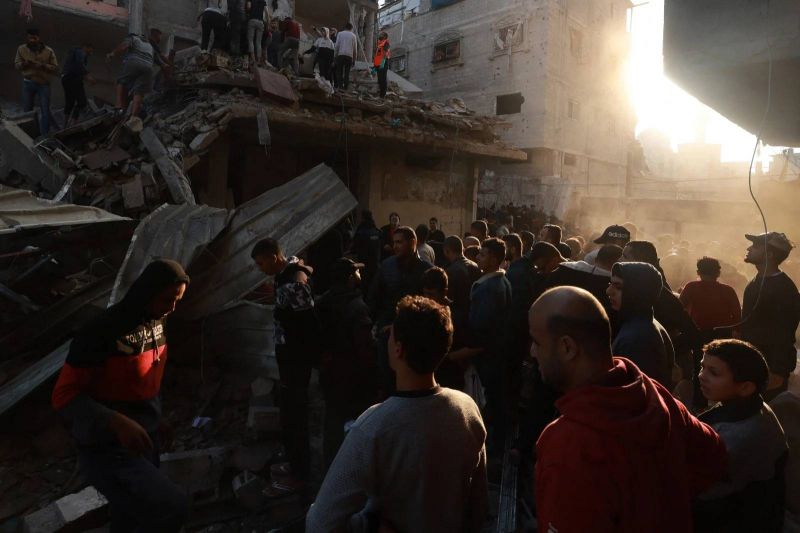
Palestinians inspect the destruction following an Israeli air strike on the Rafah refugee camp in the southern Gaza Strip on Dec. 1, 2023, as fighting resumed shortly after the expiration of a seven-day truce between Israel and Hamas militants. (Credit: Mohammed Abed/AFP)
The truce between Israel and Hamas ended at 7 a.m. this morning, after one week of tense "calm" during which the two sides exchanged 80 Israeli hostages for 240 Palestinian detainees, while violence surged in the occupied West Bank.
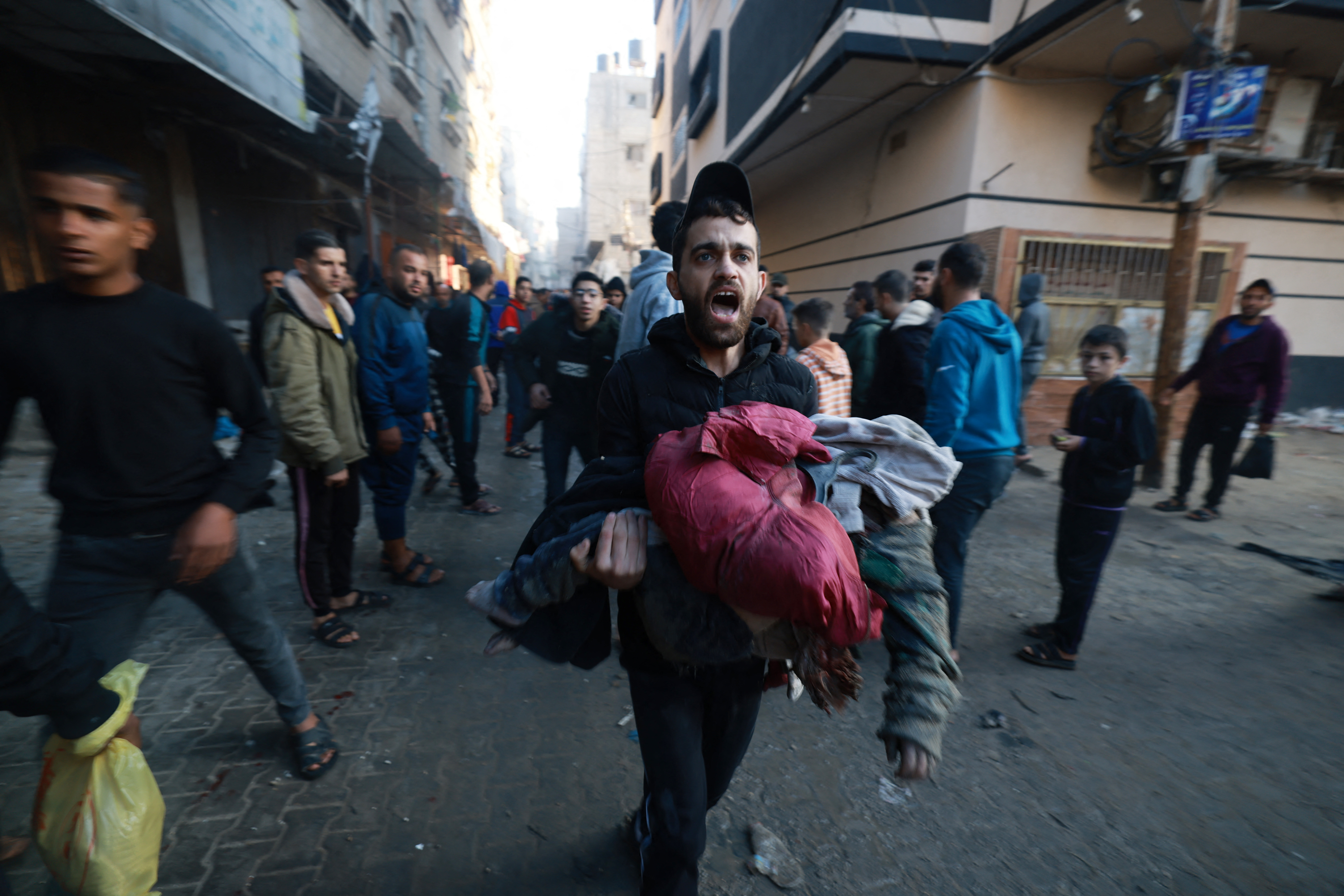 People run for cover following the resumption of Israeli bombardment in Rafah in the southern Gaza Strip today, as fighting broke out shortly after the expiration of a seven-day truce between Israel and Hamas. (Credit: Mohammed Abed/AFP)
People run for cover following the resumption of Israeli bombardment in Rafah in the southern Gaza Strip today, as fighting broke out shortly after the expiration of a seven-day truce between Israel and Hamas. (Credit: Mohammed Abed/AFP)
Immediate escalation
In spite of Thursday's reports that Qatar remained “hopeful” the truce could be extended for a third time, as the 24-hour mark of the second extension loomed, sirens were already sounding across the Gaza envelope. Full-blown warfare resumed within an hour of the truce’s official expiry and by 4 p.m. in Gaza over 100 people had already been killed, according to the health ministry there.
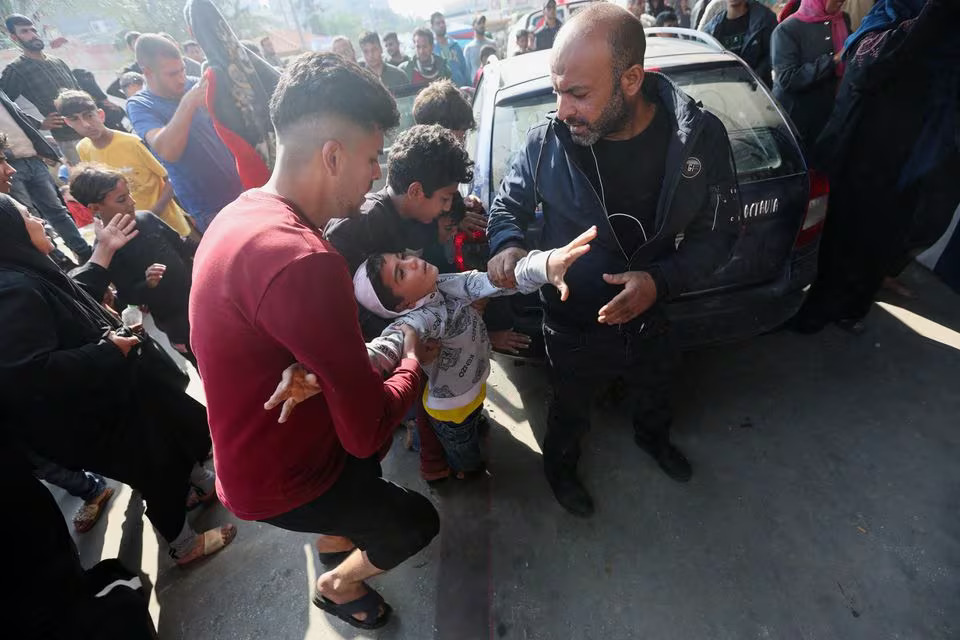 A Palestinian boy is rushed into hospital following an Israeli strike, after a temporary truce between Hamas and Israel expired, at Nasser hospital in Khan Younis in the southern Gaza Strip, Dec. 1, 2023. (Credit: Ibraheem Abu Mustafa/Reuters)
A Palestinian boy is rushed into hospital following an Israeli strike, after a temporary truce between Hamas and Israel expired, at Nasser hospital in Khan Younis in the southern Gaza Strip, Dec. 1, 2023. (Credit: Ibraheem Abu Mustafa/Reuters)
Blame from both sides
Israel blames Hamas for breaking the truce by firing missiles into Israeli territory, and Hamas blames Israel for breaking the truce by refusing fuel into the north of Gaza, as was agreed upon in the deal. Both the White House and Israeli government spokesperson Eylon Levy said the truce ended because Hamas failed to provide a list of hostages for release – the cease-fire facilitated the safe-passage of hostages out of the enclave. Without a list, there would be no exchange, and without an exchange, it seems the deal fell apart. Israel believes there are still 136 people held captive in Gaza.
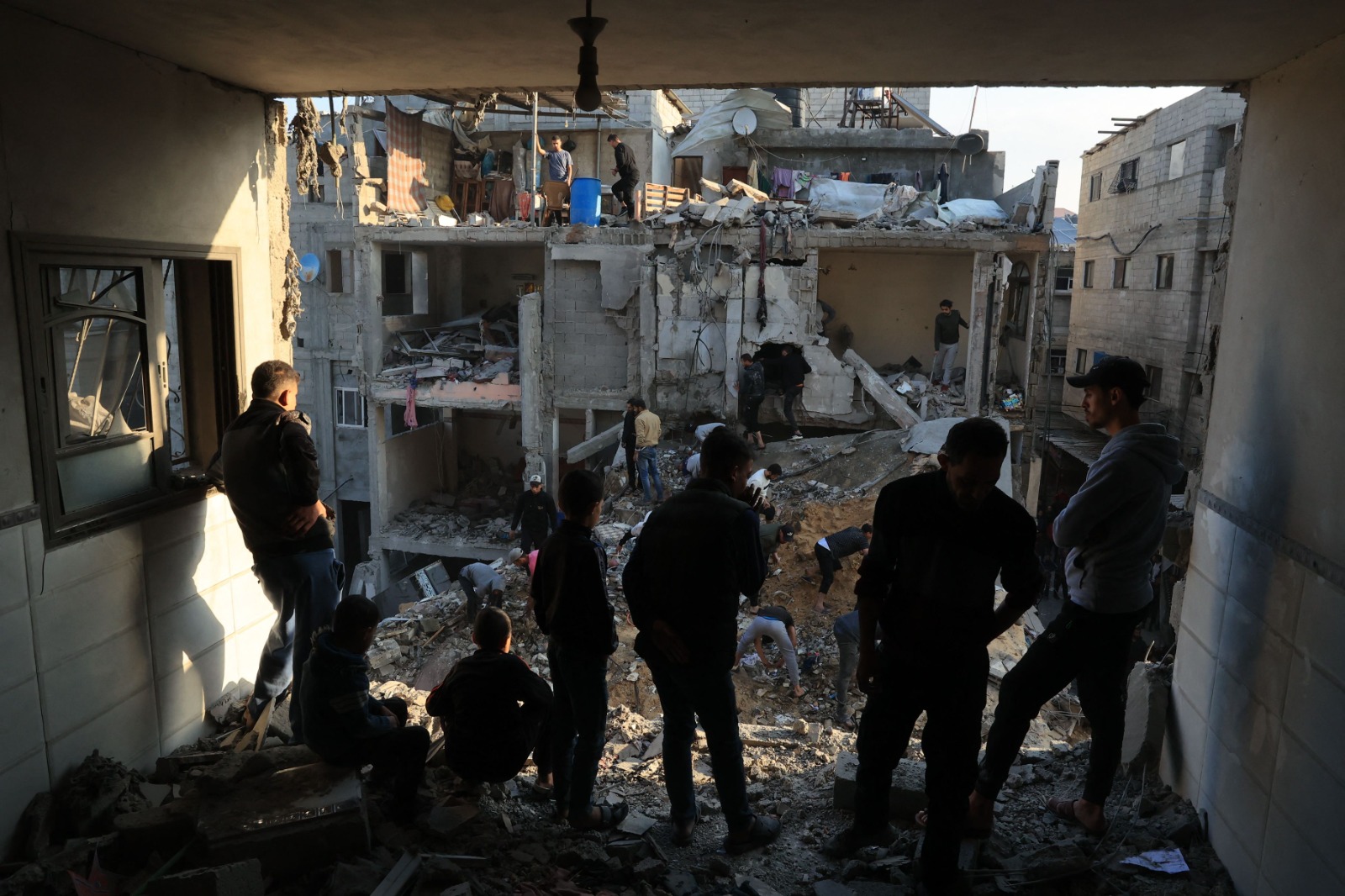 Palestinians inspect the destruction around residential buildings following Israeli air strikes in the Rafah refugee camp in the southern Gaza Strip on Dec. 1, 2023, as fighting resumed shortly after the expiration of a seven-day truce between Israel and Hamas militants. (Credit: Said Khatib/AFP)
Palestinians inspect the destruction around residential buildings following Israeli air strikes in the Rafah refugee camp in the southern Gaza Strip on Dec. 1, 2023, as fighting resumed shortly after the expiration of a seven-day truce between Israel and Hamas militants. (Credit: Said Khatib/AFP)
Offers fell flat
A statement from Hamas said "throughout the night, indirect negotiations unfolded to extend the truce,” and that the group had offered to transfer the bodies of a mother and two children who they say died from Israeli strikes while in captivity, and release the father of the family along with “two Zionist detainees.” Apparently, Israel was “unresponsive” regarding this offer.
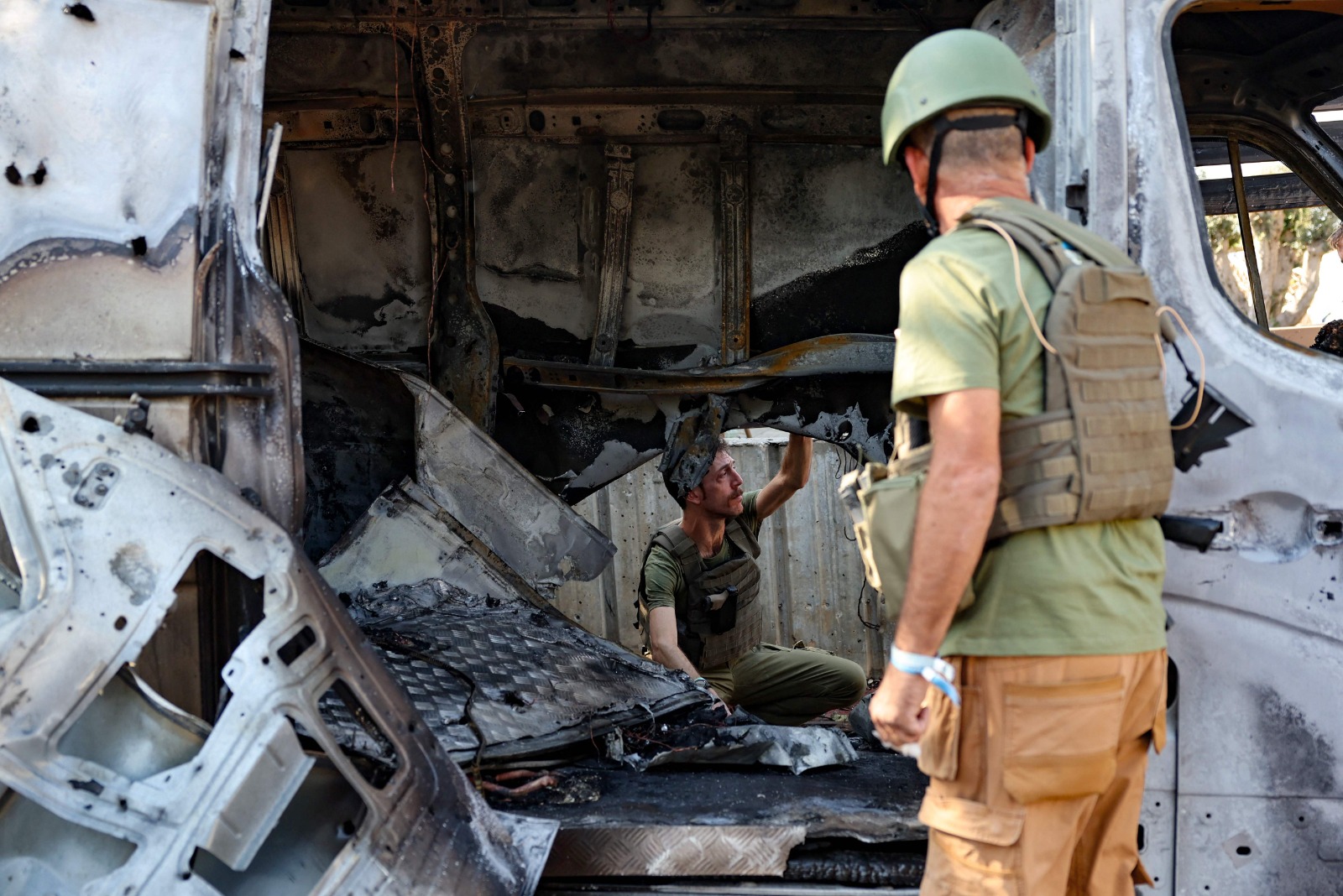 Members of the Israeli security forces check a destroyed vehicle after it was hit by a rocket fired from the Gaza Strip, in a kibbutz near the border with the Palestinian enclave on December 1, 2023, after battles resumed between Israel and the Hamas movement. (Credit: Jack Guez/AFP)
Members of the Israeli security forces check a destroyed vehicle after it was hit by a rocket fired from the Gaza Strip, in a kibbutz near the border with the Palestinian enclave on December 1, 2023, after battles resumed between Israel and the Hamas movement. (Credit: Jack Guez/AFP)
There have also been reports over the last few days hinting that Hamas is having difficulties locating more hostages. Reuters reported that the chaos of the conflict and collapsed areas throughout Hamas’ vast tunnel network may be hindering coordination between the various groups responsible for holding hostages in Gaza. Sources close to Hamas also stated that the group was interested in a particular discussion regarding the exchange of Israeli soldiers. Over the seven days, none were released.
Late Wednesday night, a Hamas source spoke to AFP saying that the group was not satisfied with Israel’s proposals and that they were ready to release all Israeli soldiers in captivity in exchange for all Palestinians being held in Israeli jails. There was no further mention of this proposal the following day.
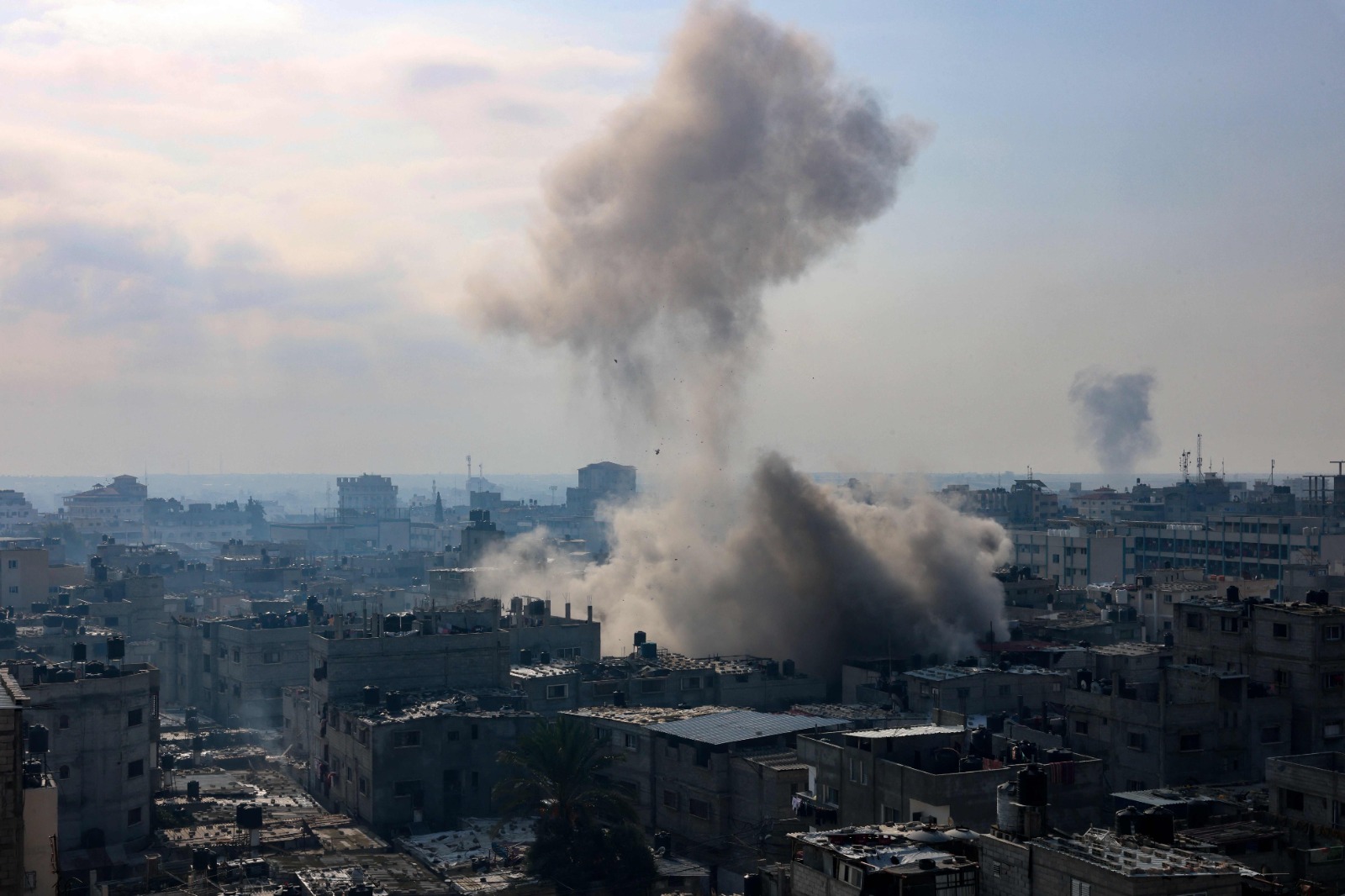 - A plume of smoke rises during an Israeli strike on the Rafah refugee camp in the southern Gaza Strip on Dec. 1, 2023, as fighting resumed shortly after the expiration of a seven-day truce between Israel and Hamas militants. (Credit: Said Khatib/AFP)
- A plume of smoke rises during an Israeli strike on the Rafah refugee camp in the southern Gaza Strip on Dec. 1, 2023, as fighting resumed shortly after the expiration of a seven-day truce between Israel and Hamas militants. (Credit: Said Khatib/AFP)
Calm, then casualties, in southern Lebanon
At first, the Lebanese-Israeli border was calm, albeit precariously. Residents in the south were moving north again, anticipating violence. Hezbollah MP Hassan Fadlallah made a statement in the early afternoon, saying: "No one thinks that Lebanon has been spared from this Zionist targeting or that what is happening in Gaza cannot affect the situation in Lebanon.”
At 3 p.m. a report came in from Israel saying its army intercepted another “suspicious aerial target,” from Lebanon. Nothing until 4:30 p.m., then a report of 12 Israeli missiles fired into Lebanon, and then, at 5:30 p.m., the death of a mother and her son, who was later identified as a Hezbollah fighter, killed in their home by a direct hit from an Israeli airstrike. By 7 p.m., another dead and three wounded were pulled from another house struck by a missile.
